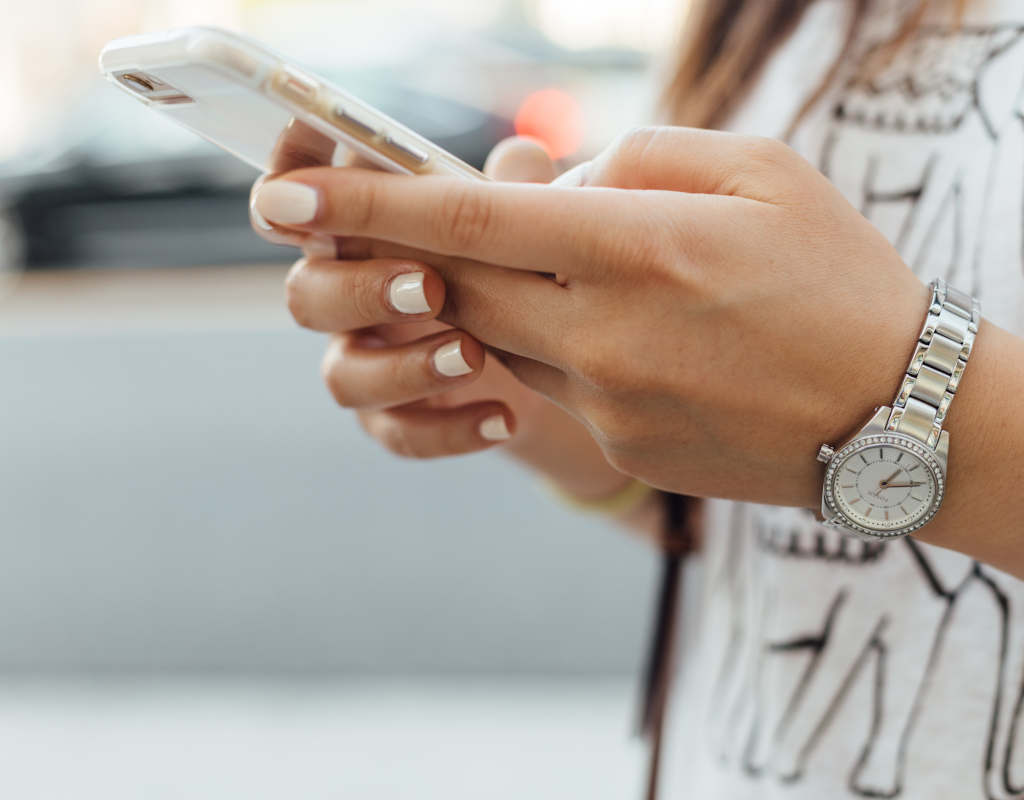How many times have you checked your smartphone today? Like most people, you’ve probably lost count. Our smartphones are often our constant companion, providing everything we need to get through our busy day – and even those not so busy days.
We use our phones to keep in touch with loved ones, to catch up on news from friends, to read the news, to check the time, to record a video, to share a photo, to read our emails, to work out how to split the dinner bill … and to distract us from life!
Our phones are an amazing technological marvel that can improve our lives, but our phone use has gotten so out of hand that there is even a word for the “fear of going without your phone” – nomophobia.
Here’s another term for you – phubbing. That’s the act of ignoring someone in favour of your phone.
Addiction or compulsive behaviour?
For some of us, our smartphone behaviour has gotten so out of hand that it is having a negative effect on our lives. Others may just be troubled by the amount of time that is being ‘invested’ into our tap, tap, swipe behaviour. Health professionals debate whether overuse of a phone is actually an addiction. Preference seems to be to refer to it as an “impulse control issue” or a compulsive behaviour.
Often the compulsion arises from social media. Getting a comment on your latest Facebook post, a like on your new Instagram photo, or a post from a friend can stimulate the release of dopamine – a chemical that is released by our brains when we experience something pleasurable. Constantly checking for your next dopamine hit can lead to overuse of your phone.
According to research by software company RescueTime, people spend an average of three hours and 15 minutes on their phone each day. We also pick up our phones 58 times a day on average. We simply don’t want to miss something – or anything!
Do I have a problem?
If you’re wondering if your phone use has gotten out of hand, you can use your phone’s settings to discover just how much time you are spending on your phone each day. Take that amount of time, say three hours per day, and turn it into something more tangible, ie that three hours per day is the equivalent of 45 days each year! If someone told you that they would take 45 days from you for every year of your life you would probably be rather peeved!
As well as time used, compulsive use of your phone may also be evident if:
- You suffer withdrawal or anxiety when you are separated from your phone
- You have difficulty in limiting your use
- Reaching for your phone when you are bored has become second nature
- You are often distracted by your phone when face-to-face social interaction should be taking place, ie at dinner, or if someone is speaking to you
- Your phone is the last thing you see at night and the first thing you see in the morning
- Your phone use is interfering with your job performance, studies, or relationships
People who overuse cell phones may experience eye strain, lack of focus, anxiety, or trouble sleeping.
How to kick the smartphone habit
Throwing away your smartphone and carrying on technology-free would be a massive reaction and probably not feasible, especially if your phone is required for work or contact. Our phones have become a vital communication tool, especially in emergencies. Some people suggest leaving your phone at home when you go out but many would find this inconvenient or worry that they may break down, have an accident, get lost, etc. Instead, putting the phone on silent when out and about could be an option.
With the exception of going ‘cold turkey’, below are some ideas for how you can begin to reduce the amount of time that you spend on your phone. There is no one solution or ‘miracle cure’. You will need to acknowledge that you need to reduce your use, then add a good dose of willpower to break the habit. These ideas may help to stop you going down the rabbit hole of just checking in and then not reappearing until several hours later!
- Make your phone as boring as possible: Take away the bling, the stylish case, the tropical screensaver. Set the phone to grayscale if you must to make your screen far less interesting.
- Remove apps that you don’t need: Remove access and remove temptation. Do you really need Animal Crossing? Or that crazy photo editor?
- Turn off push notifications: Reduce the interruptions by turning off those notifications that are not required. You really don’t need to know when your virtual crops are ready to harvest.
- Move your phone from the bedside table: I don’t recommend leaving it at the other end of the house for emergency reasons, but perhaps the phone could be charged up on a shelf away from the bed (and away from your reach).
- Set yourself a target: Put your phone into flight mode or on silent and make a pledge that you won’t check it for say, two hours. You might need to start with a shorter time and work up.
- Embrace the nothing: In circumstances where you would normally reach for your phone for “something” to do, divert your attention to nothing in particular. On the bus? Look out the window and take in your surroundings. In an elevator? Think about a random act of kindness that you could do for someone. Waiting for a friend? Watch the clouds go by.
- Keep track: Make a physical diary of your phone use (yes, pen and paper!). Consider what you could have done with that time instead.
- Do something else: Take up a hobby, learn how to play a musical instrument, cook a new recipe, go for a jog – people tend to check their phones when they’re bored, so replace your phone time with something else that gives you pleasure.
- Change your mindset: When you think, “I’ll just check my phone.” Stop. Do you really need to? Is there something else you could be doing? This one takes a while to implement.
 Written by Julie Scanlon
Written by Julie Scanlon
Julie is Editor for Kidspot NZ and our MVP. Her hobbies include laughing uncontrollably at her own jokes, annoying her family by asking questions about movie plots, and never taking anything too seriously. She speaks a little Spanish and a lot of Yorkshire.
Favourite motto to live by: “It ain’t nothing but a thing”







Leave A Comment
You must be logged in to post a comment.